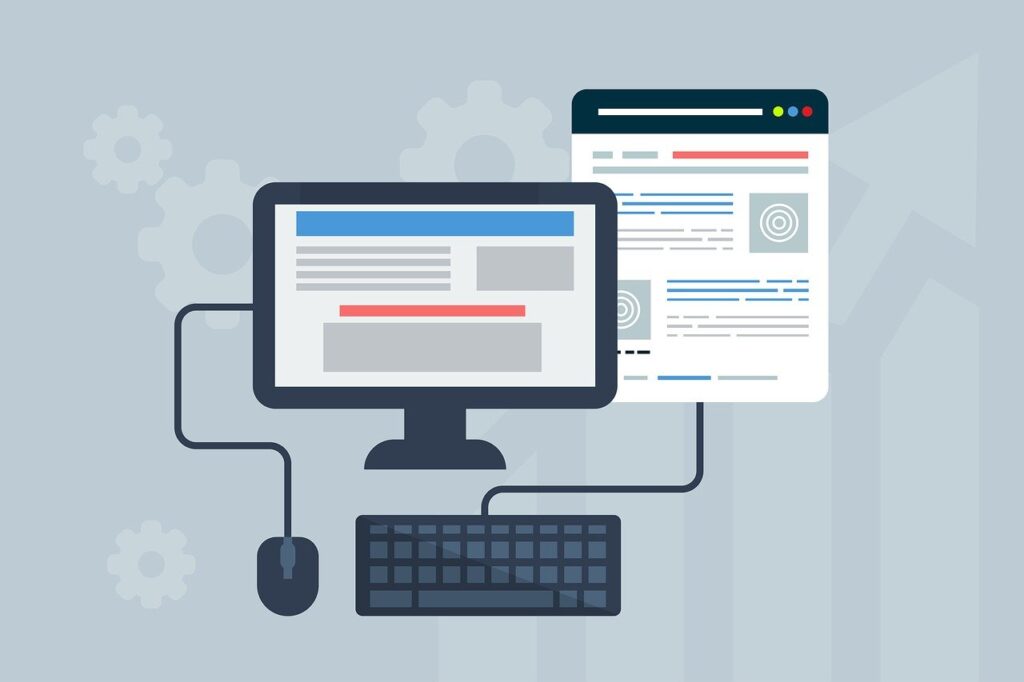
The goal of the Digi Dervish Web Developer career guide is to assist you in starting your journey toward a successful web development profession. The article offers a comprehensive summary of the development skills you should acquire, the top choices for web development courses, web development job routes, how to become a web developer, and more.
To work as a web developer, you need to be familiar with HTML, CSS, and JavaScript. Learning about CSS and CSS frameworks is also advised. Gaining proficiency in these core web development abilities will provide you with the framework and reasoning needed to interact with programming languages.
How to become a Web Developer in five steps:

1:Learn Web Development Fundamentals
2:Choose a Development Specialization
3:Learn Key Programming Languages for Web Development
4:Build Projects to Develop Your Web Developer Skills
5:Build a Web Development Portfolio
Learn Web Development Fundamentals
Learning web development essentials, such as HTML (Hypertext Markup Language), CSS (Cascading Style Sheets), and JavaScript, is the ideal place to start if you want to become a web developer.
Coding bootcamps are becoming popular among prospective Web developers as a way to expedite their learning experience. Coding bootcamps are becoming a more and more valuable investment for prospective web developers due to its short duration, intense focus on employment, and efficiency in developing job-ready abilities. Four out of every five American enterprises, according to the job site Indeed, have employed a graduate of a coding bootcamp.
The benefits of coding bootcamps are actually becoming more and more apparent over time. First of all, people from all other fields naturally gravitate toward web development, and many of them are mid-career transitioners who prioritize having a clear and effective path to skill extension. Additionally, employers are starting to place a higher value on experience and skills than education, putting people with proven competencies on par with developers with college degrees.
Choose a Development Specialization
You’ll need to select a specialty as your skill set continues to expand. However, what kinds of web development exist? There are three primary types of web developers:
Developer for the front end. The “client-side” of web development refers to any area of a website or application that users interact with, and this is where front-end developers work. This can encompass the structure, appearance, and user experience of a website.
developer for the back end. The “server-side” of web development is the domain of a back-end developer. This is centered on how a website operates and can cover a variety of topics such as databases, servers, networks, and hosting.
Developer with Full Stack. A Full-Stack Developer works on both the front and back ends of websites and is knowledgeable in both areas of development.
Learn Key Programming Languages for Web Development
For web development and web design, you will need to learn how to write in a few different programming languages, regardless of your area of focus. What are the most widely used programming languages, then?
Three families of programming languages comprise the fundamental instruments used in almost every facet of web development:
Hypertext Markup Language, or HTML
Cascading Style Sheets, or CSS
JavaScript
These are only the start of the list, of course. The list of all the jobs that web development can involve, along with all the code and markup languages that can be used to complete them, is actually too large to put in this space because web development is such a broad and varied area. Fortunately, you can locate and focus as a specialist.
Build Projects to Develop Your Web Developer Skills
You are prepared to start creating if you have a solid understanding of HTML, CSS, and JavaScript in addition to a foundation in programming.
You’ll acquire expertise utilizing an expanding range of Web Developer abilities as you proceed. Technical abilities, sometimes known as “hard” skills, include programming in Python or SQL,
utilizing the jQuery function library for more effective programming, and managing version control with Git and other tools.
To enhance your web development talents, it’s best to just start experimenting; the more you utilize them, the more proficient you’ll get.
Web developers can also benefit from having a variety of web design talents, with the awareness that responsive design may be the most important. Web developers benefit from having a strong grasp of common design ideas even though they are not usually responsible for the overall site design.
Programmers who create the interfaces that users interact with, specifically front-end developers, can achieve more success if they have a solid understanding of user-centered design.
Build a Web Development Portfolio
When looking for web development employment, your best tool is an impressive portfolio that highlights your strongest talents as a web developer. When creating a portfolio that will make an impression, there are three things to consider.
First and foremost, you should have a wide range of web development projects on your portfolio as a web developer. Your professional portfolio should be a highlight reel of your finest work that also exhibits your diversity; it shouldn’t contain every project you’ve ever worked on.
While you should be selective and focus on your greatest work, the selection you choose should also be broad enough to show that you have a firm grasp of the numerous facets of the role. Investigate the organization and the position you’re hoping to fill before applying for Web Developer positions. Then, further hone your portfolio by removing irrelevant examples and emphasizing your most pertinent work.
Is Web Development a Growing Field?
Web development is a fast expanding sector that continues to present anyone seeking to pursue a career in technology with intriguing prospects. Businesses, organizations, and individuals alike are becoming more and more dependent on the internet as the digital world grows at an unprecedented rate. Consequently, there is an increasing need for qualified web developers.
How Can I Become a Web Developer Fast?
Start by studying the fundamentals of HTML, CSS, and JavaScript through online classes if you want to become a web developer rapidly. To hone your talents, concentrate on creating little projects, and use online communities such as GitHub to display your efforts. In order to help you learn web development more quickly, Digi Dervish provides thorough instruction and materials that walk you through front-end and back-end technologies. With consistent practice and the knowledgeable guidance of Digi Dervish, you will quickly acquire the abilities you need.
What Is Needed to Become a Web Developer?
You must be proficient in HTML, CSS, and JavaScript in addition to version control systems like Git in order to work as a web developer. While back-end developers require knowledge of databases like MySQL and Node.js or Python, front-end developers should investigate frameworks such as React. Success requires both ongoing learning and a strong portfolio.
The More Programming Languages You Know, The Better
While being fluent in several programming languages can be useful, it’s more crucial to focus on mastering a select handful that are essential to your line of work. It’s preferable to concentrate on HTML, CSS, JavaScript, and other key technologies for web development rather than overstuffing yourself. Once you’re adept, picking up new languages such as PHP, Python, or Ruby can help you become more adaptable and expand your skill set. In programming, quality matters more than quantity.
Your Path to Web Development Success
With Digi Dervish at your side to provide professional training and resources, you’ll have the assistance you need to progress faster and enter the field of web development with assurance. Although the path is difficult, the benefits are priceless. Contact Us Our Experiance Team.



